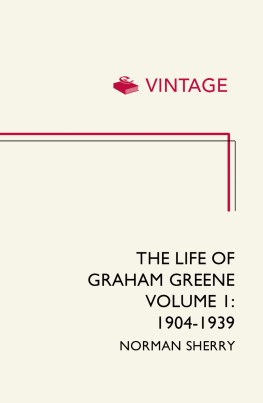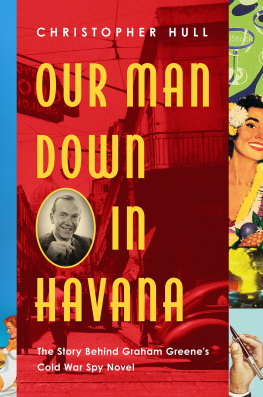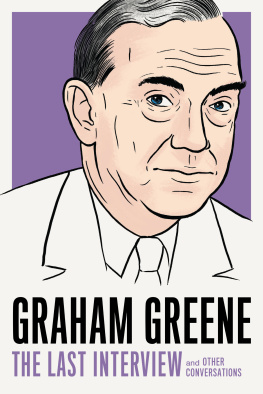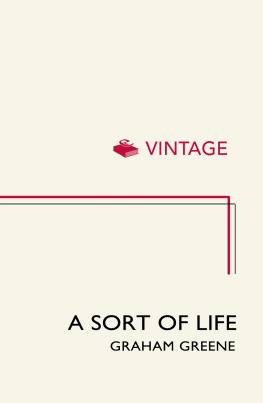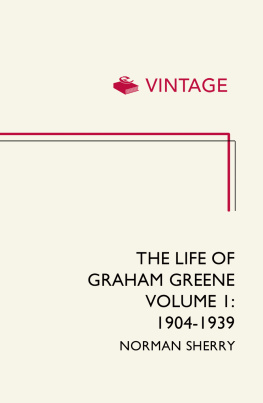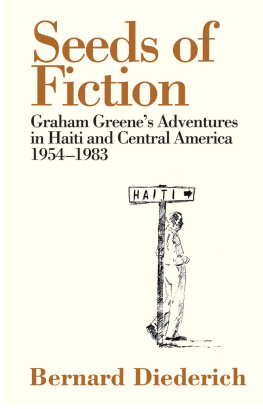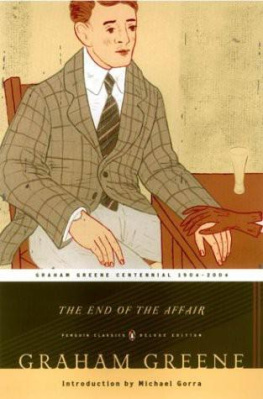Contents
About the Book
Unquestionably one of the greatest novelists of his time, Graham Greene had always guarded his privacy, remaining aloof, mysterious and unpredictable. Nonetheless, he took the surprising step of allowing Norman Sherry complete access to letter and diaries, and gave his consent to this full and frank biography in three volumes - the first of which takes Greene's life up to the beginning of the Second World War.
At the heart of the story lies a remarkable series of letters Greene wrote to his wife, Vivien, for whose sake he became a Catholic. They show us an unknown, younger Greene, impassioned and romantic. Sherry also recounts in fascinating detail how Greene struggled to turn himself into a novelist and learn his craft, and follows his subject's pre-war footsteps to West Africa and Mexico, where he was able to penetrate far into the strange and alarming territory that Greene has made his own. The book that emerges is without doubt one of the most revealing literary biographies of the decade.
About the Author
Norman Sherry, a Fellow of the Royal Society of Literature and the Mitchell Distinguished Professor of Literature at Trinity University in San Antonio, Texas, was already an accomplished biographer when Graham Greene, having read Professor Sherrys work on Joseph Conrad, asked a mutual friend to introduce them. Greene was impressed by Professor Sherrys method of literary detection, and their meeting resulted in Greene asking Professor Sherry to write his authorised biography, an exhausting but fascinating task which has resulted in The Life of Graham Greene, Volumes 1, 2 and 3.
Professor Sherrys books on Conrad, Conrads Eastern World, Conrads Western World, and Conrad and His World, are, thirty years after their publication, still quoted by scholars as the standard texts on Joseph Conrad. Professor Sherry honed his skills as a biographer with Charlotte and Emily Bront and Jane Austen.
Professor Sherry received an Edgar Allan Poe Award for The Life of Graham Greene, Volume One: 19041939. The Life of Graham Greene, Volume Two: 19391955 was designated as One of the best eleven books of 1995 by the editorial staff of the New York Times Book Review, who confirmed their admiration by featuring Volume Two in Books of the Century: A Hundred Years of Authors, Ideas, and Literature (1998).
Illustrations
Portrait of Graham Greene by Bassano, 1939
Grahams father
Grahams mother
Graham, aged 9, and Hugh, aged 3
Graham holding a ball
Graham in a goat-cart on Brighton sea front
Graham with his brothers and sisters, c. 1916
Graham outside the potting shed, 1916
Graham and his parents in fancy dress group
Dr Fry: headmaster at Berkhamsted School, 18881910
Charles Greene at his desk
Housemaster Dr Simpson
Berkhamsted School
The canal at Berkhamsted
A school production of Pyramus and Thisbe
The funeral of the young pilot, Wimbush, March 1918
Summer term, St Johns, 1920
St Johns gym VIII
A school production of Lost Silk Hat, 1921
Kenneth Richmond, the psychoanalyst
Kenneth Bell, Grahams tutor at Balliol
Father Trollope
Graham in thoughtful mood
Ivy House, Nottingham
Gwen Howell, Grahams first love
Vivien, aged 17
Graham, aged 21
Volunteers during the General Strike, 1926
Police dispersing rioters, 1926
Exploring the Amazon by hydroplane
Shock troops at The Times awaiting orders
Graham and Viviens wedding, 1927
Running from a shower of confetti
Graham and Vivien at Little Orchard
Subeditors room at The Times, 1928
Little Orchard, 1930
Police charge hunger marchers, 1932
Father Christie
Lady Ottoline Morrell
Edith Sitwell, Neil Porter and Sengerphone
Barbara and Graham Greene
Passengers bound for Sierra Leone, 1935
Graham and Barbara on board the David Livingstone
Freetown, Sierra Leone
Graham in Liberia
Crossing a rope bridge
Graham speaking to tribal leaders
The village of Pagan Mosambolahun
Duogobmai: The Horrible Village
The Big Bush Devils hut
Crossing the St Pauls river in Liberia
Dr Harley and his children
A prisoner awaiting trial in Tapee-Ta
Filming Brighton Rock
Richard Attenborough and Carol Marsh in Brighton Rock
Shirley Temple in Rebecca of Sunnybrook Farm
Geoffrey Wylde sketching Graham Greene, 1937
Graham Greene in his St Jamess Street flat
The brothels in Matamoras Street
The Ruiz Cano at Frontera
A street in Yajalon, Northern Chiapas
Astrid and Lala Rasmussen
Frau Rasmussen with her two daughters
Ernest Raiteke
Astrid Rasmussen
The German photographer in Yajalon whom Greene met in 1938
Women bring religious articles to be burnt
The smouldering remains of religious statues
Tomas Garrido Canabal
A priest executed outside his church
Shuttered Yajalon church
Procession of saints in Chamula, Chiapas
The execution of Padre Pro
Giant crosses of the Chamula Indians
Graham Greene, c. 1939
Vivien, a few years later
LINE ILLUSTRATIONS
The Star, 18 January 1921
Graham and Viviens secret code
Greenes drawing of his stitches after his appendix was removed
Not tears I give (from letter 7 January 1927)
Marriage Service sheet
Cutting from the News Chronicle, 7 January 1935, with a picture of Greene and his cousin Barbara leaving for Liberia
Map of Liberia
Visiting card for Col Elwood Davis, Liberian Army
Postcard from Vivien to Ben Husch giving directions to 14 North Side, Clapham Common
Cover of the first issue of Night and Day by Feliks Topolski
Map of Graham Greenes Brighton
Sketch of Greene by Geoffrey Wylde
The Blue Book
Map of Tabasco and Chiapas
Greenes drawing of Don Pelito
for Elisabeth Dennys
with love

Many years will go by. Many great years. I shall then no longer be alive. There will be no return to the times of our fathers and grandfathers. This would, indeed, be both undesirable and unnecessary. But at last there will appear once more things that have long lain dormant: noble, creative and great things. It will be a time of final accounting Think of me then.
BORIS PASTERNAK
Preface
This biography had its origins in a list which Graham Greene kept and still keeps of the books he reads. Against my second book on Joseph Conrad, Conrads Western World, he had put in July 1971 two ticks, indicating special approval. Three years later the journalist William Igoe told me, over lunch, There is a man who is a legend in his own time and who admires your work. That man was Graham Greene. When he was next in London we were introduced. I did not know then that he was under some pressure from his family and friends to appoint a biographer, but during lunch, while I was still fascinated by his singular smile and eyes so blue that they gave off a curious sense of blindness, he suddenly said, You wouldnt be able to write about me as you wrote about Conrad you wouldnt be able to get into Saigon (the setting of

